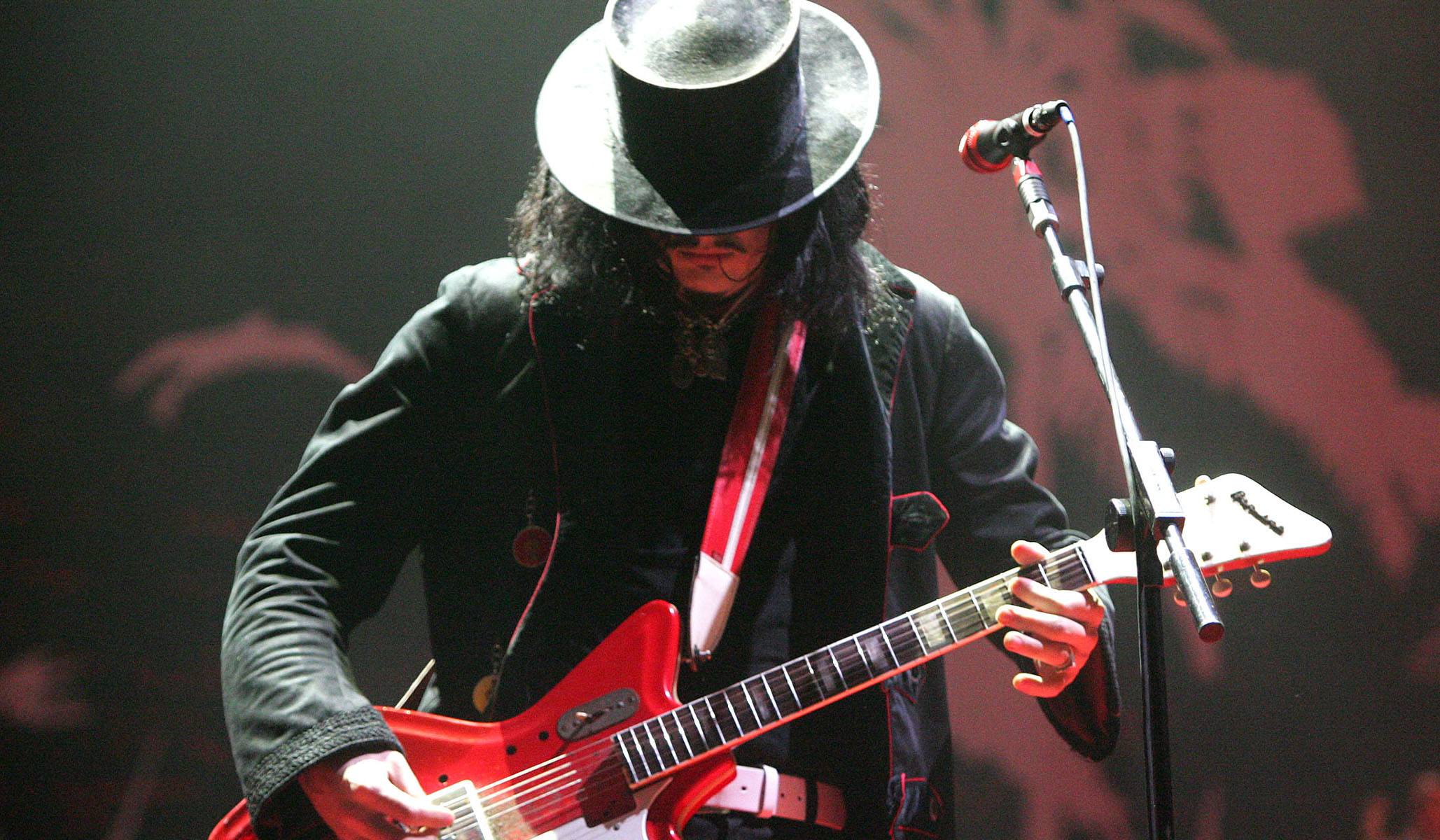


The White Stripes have announced a reissue of the album Elephant to mark the 20th anniversary of that classic album, which was released April 1, 2003. The album deserves to be consumed and recalled in full, but its memory is dominated by its opening track, “Seven Nation Army.” In fact, “Seven Nation Army” has a strong case to be considered the best song of this century thus far.
A bold claim, to be sure, and one that will be disputed by listeners whose preferences run far afield from rock ’n roll and adjacent musical genres. But at least within the genres of new music that have been played on the radio in this century, what else compares? I’d tab Adele’s “Rolling in the Deep” as the best song of the century’s second decade, with its genre-spanning invocation of an updated version of the sound of Sixties R&B, but “Seven Nation Army” has attained, if anything, an even more iconic position, and earned it. The song’s calling cards are its simplicity, its hypnotic rhythm, and most of all its indelible melodic guitar riff. It is Jack White’s creation as a songwriter, guitarist, and vocalist, aided only by his ex-wife and drummer Meg White holding down the simplest of beats. The lyrics, as with many rock songs, set a poetic mood rather than being literally comprehensible. The tension and stripped-down menace are announced right up front by the opening guitar chords (White plays what sounds like the song’s bass line on his guitar) and White’s brittle, sneering delivery:
I’m gonna fight ’em allA seven nation army couldn’t hold me backThey’re gonna rip it offTaking their time right behind my backAnd I’m talking to myself at nightBecause I can’t forgetBack and forth through my mindBehind a cigarette
White builds to a crescendo of disenchantment:
I’m going to WichitaFar from this opera forevermoreI’m gonna work the strawMake the sweat drip out of every poreAnd I’m bleeding, and I’m bleeding, and I’m bleedingRight before the LordAll the words are gonna bleed from meAnd I will sing no more
The simple and repetitive iconography and black-red-white color scheme of the song’s music video fit perfectly with the hypnotic mood:
The combination of a simple melody, a driving beat, and an instantly recognizable hook that anyone can chant has given the song a whole separate life as a staple of marching bands and play at sporting events:
One of the hallmarks of great songs is that they can often be interpreted in multiple ways. “Seven Nation Army” has been covered by a variety of artists. I’m partial to two very different versions that illustrate different approaches. Pop star Kelly Clarkson did a hard-rocking cover of the song in her fall 2009 tour, with a fuller band sound with a horn section and keyboards adding to the guitars, and wailed her head off to dial up the pathos in the final verse:
Country music veterans the Oak Ridge Boys, by contrast, used a spare arrangement that played the song’s distinctive riff on the piano, and sang it with the gristle of old cowboys riding off into the sunset:
One of the several reasons for the declining cultural power of rock ’n roll in the 21st century is the sense that a lot of the great riffs have already been mined to death. The White Stripes proved that there was still a lot of life left in rock if you could mint a new one. For now, that’s as great a height as anyone in popular music has scaled in this century.
